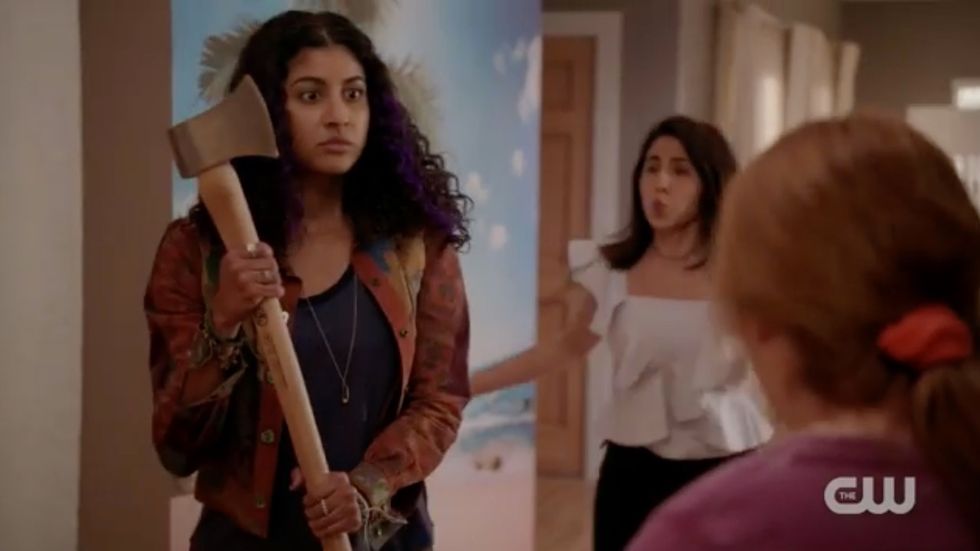It's summer hiatus for most shows, and apart from all the new documentaries Netflix seems to release every day, and the eagerly anticipated "Orange is the New Black" season six, new television is at a bit of a standstill until shows start up again in the fall.
Not to mention, most college students are on break this time of year and have a lot more downtime than they're used to during the school year.
These factors all make this time of year the perfect time to start binge-watching a new show, on Netflix, Hulu, or really any streaming platform you like. And here as a leading contender for you to check out, I have "Crazy Ex-Girlfriend," one of the greatest underdog TV shows to pop up in the past five years.
"Crazy Ex-Girlfriend," created by Aline Brosh-Mckenna and popular YouTube comedienne Rachel Bloom, stars Bloom as Rebecca Bunch, a hardworking New York City lawyer who has a nervous breakdown after seeing her ex-boyfriend from summer camp ten years ago on the street one day, and decides to move across the country to a suburb in California, West Covina, to try and win his love.
It is a musical comedy show, making it the only musical show on television right now. Over the three seasons of the show so far, the music writers (led by Adam Schlesinger of "Fountains of Wayne" fame) have composed over one hundred original songs, ranging from the hilarious "Buttload of Cats" to the emotionally gut-wrenching "You Stupid Bitch," and the show has won an Emmy for its choreography.
But if this seems like a slightly misogynistic premise for a television show, that's somewhat the point. "Crazy Ex-Girlfriend" takes the common trope of the "crazy ex-girlfriend" and actually deconstructs it as a byproduct of a sexist society and ingrained stigma against mental illness.
We hear a lot of stories about crazy ex-girlfriends in society, from male comedians to tabloids, from the purported Kanye West/Taylor Swift feud to the NASA astronaut who drove across the country in an attempt to kidnap her ex-boyfriend who dumped her. But almost all of the stories we hear come from the perspective of the men in the situation, never the women.
Comedian and actor Donald Glover once asked during a stand-up routine why we hear a lot about crazy ex-girlfriends but never hear about women's crazy ex-boyfriends and reported that it was because "if you've got a crazy boyfriend, you gon' die." Which is unfortunately very true in our society — women face the threat of stalkers, cat-callers, and domestic abusers every day at a disproportionate rate to men. But even beyond the literal danger of crazy ex-boyfriends as opposed to crazy ex-girlfriends, a lot of the disparity comes down to how easy we find it to label and dismiss a woman as crazy in society today as opposed to truly thinking about why someone would behave "crazy" or consider the inherent complexities in anyone's actions and persona.
"Crazy Ex-Girlfriend" refuses to dismiss the protagonist as crazy and move on, it delves into the complexity and nuances of mental health in a way that is almost unheard of on network live-action TV. It explores the concept of "crazy" and the way that pejorative term lumps together a wide variety of mental disorders in a way that invalidates all the people who suffer from them.
The show is chronically undervalued, with some of the lowest ratings on television today, but it is the TV show that our society desperately needs right now. As American society becomes more and more politically polarized and anti-intellectualism and alt-right movements grow, it is this type of entertainment that refuses to bow down to the increasing political pressure. It continues to fight against pervasive social attitudes that will get us through these dark times and hopefully, eventually, pave the way for a social climate where a show with a feminist, mentally ill protagonist is no longer considered a revolutionary concept.

















